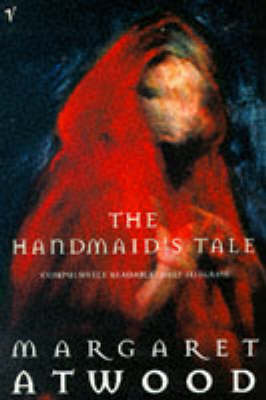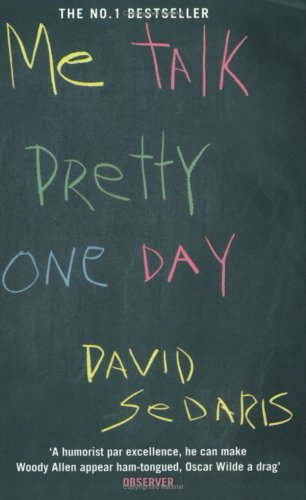I desperately want a writing job, whether it be for a newspaper, magazine, website, publishing company… I love words, word puzzles, reading (one again whether it be newspapers, magazines, books, novels), Stephen Fry, movies and TV shows with punchy scripts, and writing. I even like editing. Oh, and I especially love interviewing people and sharing their passions, experiences etc.
But there are a lot of people that share my love for the written and spoken word. And this swelling mass of people are applying for a small number of jobs. At least this is the case in Australia, and I can only imagine that media companies in other parts of the world are under similar pressures (including those stemming from the proliferation of the Internet and the GFC) to reduce staff and other expenses.
I’m working on a spreadsheet of all the jobs for which I’ve applied and the media organisations that I have cold emailed (and for the most part pissed off). I’m going to take this list with my resume, cover letter and other application paraphernalia to a Careers advisor next week.
In the interim, a much more fun way to improve my writing, and hopefully my employability, is by reading works of writers I admire and seeking their writing advice

I just started reading The Blind Assassin by Margaret Atwood. We read her The Handmaid’s Tale in high school and it scared me. The Handmaid’s Tale is a dystopian novel set in near future America, where a totalitarian theocracy has overthrown the government. There are problems with fertility, so those women able to bear children are used as portable wombs and maids. Some of the scenes, including the vivid descriptions of a very un-sexy three way and a woman giving birth, have stuck with me for years.
I just finished reading David Sedaris’s Me Talk Pretty One Day. I originally picked up this book to use for an article or a review for the website www.MyFrenchLife.org, where I interned for six months, because the second half of it centers around Sedaris’s time in France. I didn’t end up writing that article and my French tunnel vision saw that I didn’t take the time to enjoy the rest of the book. Now I have more time (did I mention that I am looking for work), I got to read it cover to cover. Oh my gosh, Mr Sedaris is so funny. He goes of on tangents, but has an incredible ability to bring the story (well, it’s not always story as in this happened, and then this and this… so maybe ‘discussion’ or even ‘essay’ are better terms) back together, like Bill Bailey’s stand up shows. I also admire that he tells these outrageous, funny stories, and then couples them with such poignant glimpses of his feelings of isolation and confusion – first as a gay man in a smaller American city and later as an Anglophone in France. And his world is full of weird characters, not the least his family.

Sedaris mentions in Me Talk Pretty One Day that he writes on a typewriter.
“When forced to leave my house for an extended period of time, I take my typewriter with me, and together we endure the wretchedness of passing through the X-ray scanner… To me it seems like a normal enough thing to be carrying, but the typewriter’s declining popularity arouses suspicion and I wind up eliciting the sort of reaction one might expect when traveling with a cannon.”
Maybe he likes it because it lets you blurt out words without editing yourself (or at it’s more difficult to edit yourself, so you might let small changes roll by and not get caught up with them). Sometimes I think much better on paper than on a computer, in part because I can see my thought process better (arrows to shift paragraphs around etc. that I might regret later).
As author Sandra Gulland said when I interviewed her last year:
“One of the things you will learn from them is that everyone’s first draft is garbage. You don’t really have anything until you’ve taken something through six or eight drafts. And these include major changes. This is one thing that young writers don’t understand; it’s a process of discovering the story, over and over again. You have to be patient and give yourself time.”
She also said of writing:
“I would say make time for it; you’re not going to find time for it, you really have to make time… I had to give up things in my life.”

Sloane Crosley, another writer whom I adore, said in article earlier this year
“I like to try to do a little work before I do anything in the morning, even if it’s a paragraph… I tried to write in the afternoon, but writing in the afternoon is like performing open-heart surgery drunk. Or so I’ve heard.”
In high school, I had read the books over and over and read all the notes I could on them, but when it came to practice essays, I would freeze. So I went to an English tutor. I went to her house, she had a soft face and dark hair, I can’t remember anything but her suggestion that I go home and just put pen to paper, write whatever came into my head.
Because the pursuit of perfection can be crippling.
I’m also reading André Comte-Sponville’s The Little Book of Philosophy, and in the chapter on Art he highlights that there is no right or wrong in art, only the pursuit of beauty, understanding and truth. An it is this subjectivity that allows for the individual’s unique contribution to art.
He stipulates that discoveries in the sciences, even those of Einstein and Newton, would have been made (eventually) by somebody, but that the development of art (and the insights it provides into humanity) wouldn’t be the same without the unique creations of Bach, Mozart and Shakespeare.
Another genius artist was Ernest Hemingway, who gives this great advice on writing:
“The best way is always to stop when you are going good and when you know what will happen next. If you do that every day … you will never be stuck.”


